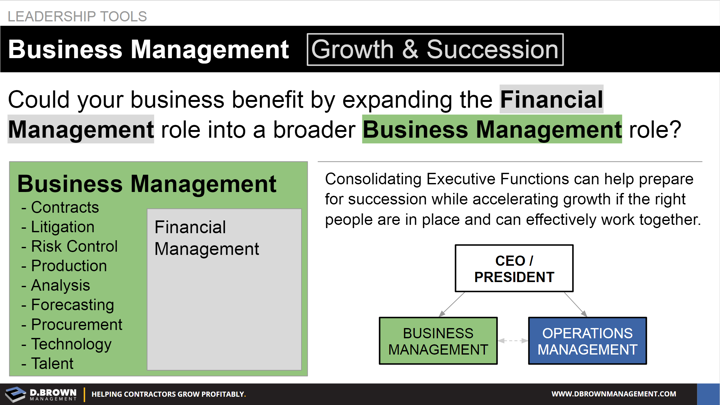At exactly what stage a contractor starts to expand this role depends on:
- Volume or work
- Complexity of work
- Complexity of the regulatory environment the contractor operates in
- Best Return on Time for other operating executives who are currently doing these functions
Of all these the best Return on Time for other executives is often the most overlooked. Consider how much time some of these functions take other people in the organization.
Could their time be better spent:
- Connecting with customers to help develop business?
- Improving project execution?
- Spending more time developing talent to build capacity for the future?
A fifth major factor includes succession - sometimes the owner/operator of the company is doing so many of these functions or managing so many direct reports that a clean succession is nearly impossible.
Schedule a call with us to see if this makes sense for your organization

